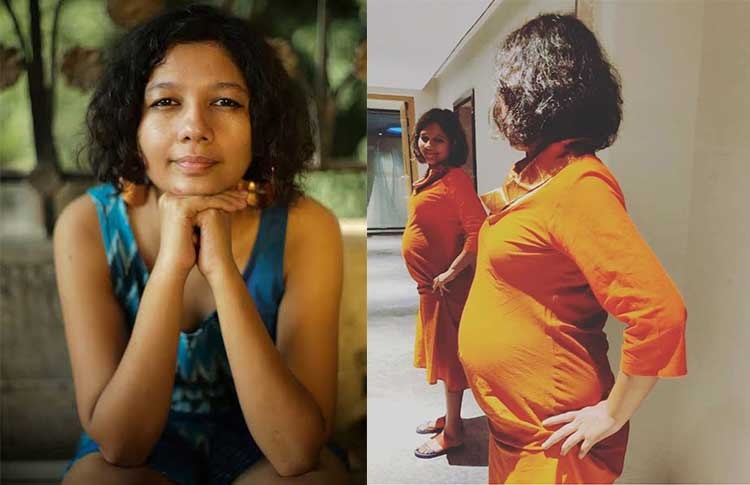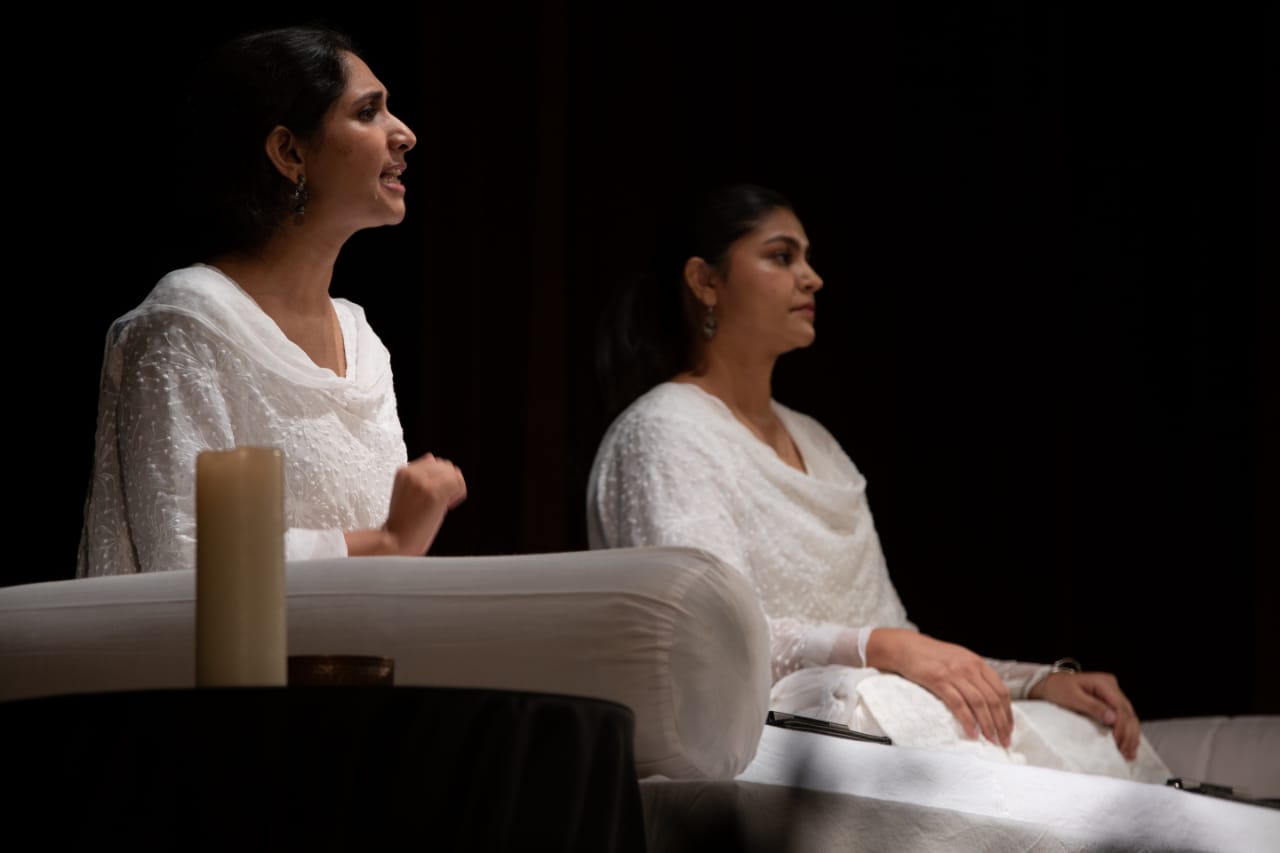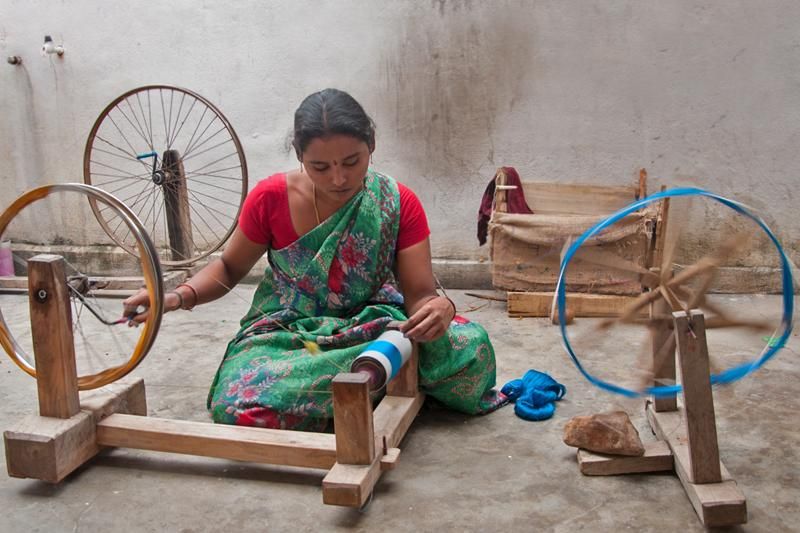Nandini Krishnan Gives Us A Sneak Peek Inside India’s Transmasculine Network
- IWB Post
- December 5, 2018

For a country that is continuously debating about the Transgender bill and Transgender rights, India still remains ignorant about the whole idea of intersex people and the majority of transgender issues.
Most cisgender individuals still remain unaware of the vast gender umbrella and the fact that there exist way more gender orientations than what they are aware of.
Take, for instance, the entire idea of transgender individuals and how the image of dancing, begging hijras pop in our head each time a mention of the word is made. So many of us remain unaware of the fact that hijras are just a constituent community of a section of trans women which fall under the bigger umbrella of trans individuals.
This remains a major reason transmen remain highly invisible both within the community and the country at large. Thus sensing the need of the hour, author Nandini Krishnan has addressed the issue and has attempted to provide a voice to the transmen of the country in her latest book Invisible Men: Inside India’s Transmasculine networks. The book narrates the experience of being a transman in India and addresses the consequent plight of the community.
Nandini, in a recent Twitter dialogue with IWB, gave us an insight into the workings of the community. During the conversation, she talked about how transmen struggle within the dual binds of gender stereotypes and patriarchy. She said, “There is an added complication for transmen, compared to cismen. They are perceived as girls and women growing up and therefore are also victims of patriarchy.”
Nandini also talked about the major reason behind their invisibility, the importance of community, and the amendments required in the present laws.
Here are excerpts from the chat:
On the main reasons behind transmen’s social invisibility in comparison to transwomen
Nandini Krishnan on Twitter
@indianwomenblog @KamaSutra_In There are three main reasons: (a) absent lineage in life, literature, and mythology, leading to a lack of knowledge (b) the fact that there is no organised system of quasi-familial structure, unlike transwomen’s jamats (c) the body’s vulnerability to various kinds of exploitation
Nandini Krishnan on Twitter
@indianwomenblog @KamaSutra_In I don’t like to dwell on the body, because it is unfair to transmen. But we cannot deny that they are vulnerable. Some transmen I know have been victims of forced marriages to cismen, because their families saw them as daughters. #TheCuntry
Nandini Krishnan on Twitter
@indianwomenblog @KamaSutra_In A transman friend was subjected to marital rape. Many have been subjected to physical or sexual abuse, and have to constantly be wary at the workplace. So, without strength in numbers as transwomen have, many transmen may have believed it is better to lie low. #TheCuntry
On creating awareness about transmen through her book
Nandini Krishnan on Twitter
@indianwomenblog @KamaSutra_In I have simply let my interviewees speak. I had no awareness or information about the lives of transmen when I started my research. I had worked on a video documentary on being trans in 2006. I met some transmen, across countries. #TheCuntry #InvisibleMen #TransLivesMatter
On being conscious of her “cisgender privilege” while writing the book
Nandini Krishnan on Twitter
@indianwomenblog @KamaSutra_In You know, we often speak of how gender inequality exists, and how men are more privileged that women. But to be a man while having a woman’s organs or vice versa – one cannot imagine what that is like unless one has been through the experience.
Nandini Krishnan on Twitter
@indianwomenblog @KamaSutra_In So I felt very conscious of the fact that I was writing about something I had not ever and would not ever experience. Yes, it is a privilege not to have a mismatch between your gender identity and your assigned biological sex, and that is what being cisgender is all about.
Nandini Krishnan on Twitter
@indianwomenblog @KamaSutra_In And when you’re writing from a position of privilege about people who do not have that privilege, it is easy to fall into a trap – of “other”-ing your interviewees, of being a voyeur, of sounding authoritative while being uninformed.
On the importance of support groups in providing a safe and nurturing space to transmen
Nandini Krishnan on Twitter
@indianwomenblog @guffawer @KamaSutra_In The support groups are what my friend and interviewee Satya Rai Nagpaul calls “life-giving networks”. To suddenly find that you are not a deviant, but a perfectly acceptable and perfectly common human being, with others like you, is an immediate relief.
Nandini Krishnan on Twitter
@indianwomenblog @guffawer @KamaSutra_In Besides, there are several role models. Satya himself is an ace cinematographer, who has won multiple prestigious awards. Aryan Pasha is a bodybuilder who is participating in cismale bodybuilding competitions. There are CRPF and police personnel who are transmen.
Nandini Krishnan on Twitter
@indianwomenblog @guffawer @KamaSutra_In If there is any transman out there who is not aware of which support group to turn to, I can immediately suggest he write to Sampoorna Working Group.
On sexism among transmen
Nandini Krishnan on Twitter
@indianwomenblog @KamaSutra_In The first thing we need to understand is that transmen are not “women who have transitioned into men”. They are men, assigned female at birth. In their minds, they are men. “Cis” and “Trans” are simply adjectives. So, sexism among transmen exists the way it does among cismen.
Nandini Krishnan on Twitter
@indianwomenblog @KamaSutra_In There is an added complication for transmen, compared to cismen. They are perceived as girls and women growing up, and therefore are also victims of patriarchy.
On the common gender narratives defining sexual identities in family situations for transmen
Nandini Krishnan on Twitter
@indianwomenblog @KamaSutra_In For the same reason that transmen themselves, as children, believe they are oddballs – lack of knowledge – the families too are entirely unaware that their child is not a girl. They see their trans-sons as daughters, and presume that they are cisgender and heterosexual.
Nandini Krishnan on Twitter
@indianwomenblog @KamaSutra_In Transmen, like cismen, grow up seeing a heterosexual family structure. Like cismen, they think of themselves as boys, and largely are attracted to the opposite sex, though of course it is not necessary.
Nandini Krishnan on Twitter
@indianwomenblog @KamaSutra_In But, as far as family is concerned, they are expected to behave as girls, expected to have female friends and not talk to boys, and expected to marry men when the time comes.
Nandini Krishnan on Twitter
@indianwomenblog @KamaSutra_In Add to this the sexual repression families typically impose on their daughters, and if you look at it in the context of these children being seen as daughters, you have some idea of what their adolescence is like.
Nandini Krishnan on Twitter
@indianwomenblog @KamaSutra_In And given that the campaign is being supported by a condom brand, this is a good time to question the idea of sex as procreative. The main reason people offer to call some couplings “unnatural” is that they are not procreative.
Nandini Krishnan on Twitter
@indianwomenblog @KamaSutra_In Puberty is extremely traumatic for any transperson, FTM (female to male) or MTF (male to female). One sees oneself as a man, and expects to develop the external organs and characteristics of a man. The opposite begins to happen. One can only imagine the trauma of this.
On caste, class, family, faith, and education defining the ‘invisible’ identity of gender
Nandini Krishnan on Twitter
@indianwomenblog @KamaSutra_In It surprised me how much caste played into interactions between transmen. Class, too, is a factor. There is awe of a level of financial privilege, and people might think twice before making a snide remark. They might say nasty things behind your back but usually not to your face.
Nandini Krishnan on Twitter
@indianwomenblog @KamaSutra_In Education, too, is an important step towards financial independence, and that naturally makes one less dependent on family, while also making one less indispensable to the family. It is easier to disown a mouth to feed than a contribution to the family kitty.
Nandini Krishnan on Twitter
@indianwomenblog @KamaSutra_In Often, families would insist that transchildren – both FTM and MTF – keep their identities secret if they are to stay on with them. The ones who are out and are accepted by their natal families tend to be privileged in terms of caste, class, and/or education.
Nandini Krishnan on Twitter
@indianwomenblog @KamaSutra_In Faith, too, plays a big role. If your religion – which, by extension, is also your social community – disapproves of something and your child appears to be going against your religion, how do you react?
On how trans men can navigate and reclaim their sexual desires
Nandini Krishnan on Twitter
@indianwomenblog @KamaSutra_In The world is particularly interested in curbing most forms of sexual desire. This is truer in countries that pride themselves on an imagined “culture” – of denial, of abstinence, of repression, I don’t know, but “culture” it is.
Nandini Krishnan on Twitter
@indianwomenblog @KamaSutra_In In such a context, there is only one way to reclaim sexual desire – by not giving a fuck what anyone else thinks.
On what the government is doing and what needs to be done
Nandini Krishnan on Twitter
@indianwomenblog @KamaSutra_In Here is a wonderful factsheet on the Sampoorna India Blog, put up about a year ago, which tells you the difference between what is being done and what needs to be done: https://t.co/tMoAy3mzis
Nandini Krishnan on Twitter
@indianwomenblog @KamaSutra_In To give you an account of just how difficult it is to have one’s documents changed, here’s an interview I did on this podcast. Kirithik Shiva, a 21-year-old student, speaks about his experience, about 20 minutes into this: https://t.co/IWMbHRasHb
On the amendments that are needed in the law
Nandini Krishnan on Twitter
@indianwomenblog @KamaSutra_In The trans community, as far as the police are concerned, is associated only with begging and soliciting, and the police often treat them as criminals, even when they are victims. They are often subject to extremely rude remarks.
Nandini Krishnan on Twitter
@indianwomenblog @KamaSutra_In Also, there is no point filing reports unless there is a provision for redressal. The Indian Penal Code needs some serious reworking as far as its assumptions with respect to the sex or gender of a victim and perpetrator are concerned.
On what’s being done to protect transmen from sexual abuse
https://twitter.com/k_nandini/status/1068847062333063168
Login on Twitter
Welcome back to Twitter. Sign in now to check your notifications, join the conversation and catch up on Tweets from the people you follow.
Nandini Krishnan on Twitter
@indianwomenblog @KamaSutra_In I know two transmen who were victims of intimate partner sexual violence, one from a ciswoman and one from a transwoman. Before we even look at whether we can protect, we should examine whether we acknowledge.
Constantly striving to be a wholesome voice in contemporary feminism, IWB has come up with the campaign “ The Cuntry” to stand up for sexual choices of women/LBTGIA+ for pleasure and not just for procreating. The campaign will take you across the country as we navigate the sexuality of women, how it has been repressed all this while, and seek ways of freeing it.
Campaign partner Kamasutra has joined us in our quest and will help us in taking you across the Cuntry as we navigate the dynamics of LGBTQIA+ invidual’s/women’s sexuality in India and attempt to free it from the confining fetters of repressed ideologies.
We invite you to bring your love/lust stories to find power in the spoken word and set yourself free. We’d love to know how you rose above the burden of stigma that the society so liberally throws on our shoulders. We seek your stories to inspire, empower, and liberate those hesitant to make the first move towards claiming their agency in sexual pleasure.
You can reach out to us on hello@indianwomenblog.com. You can also DM your story to our Facebook and Instagram handles. (P.S. Confidentiality would be ensured if you ask for it).
But wait, we have something more to get you excited. Kamasutra is offering a 10% discount to everyone who uses our special campaign coupon code ‘CNTRYKS’. This discount is over and above current discounts /offers running on the KamaSutra range. (Approx. 15% discount is offered on all their products on the platform.) Now, how exciting is that! Click here to avail our reader special discount.
- 0
- 0












